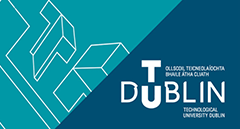Author ORCID Identifier
https://orcid.org/0000-0001-9090-8861
Abstract
The IMPACT project at TU Dublin has been informed in part by the outcomes of the Co-CREATE project in 2019-20. Co-CREATE was a Team Teaching Fellowship project to support and underpin the building of a quality curriculum framework for the new technological university. A number of IMPACT projects (for example, NorthStar) have continued the work started within the Co-CREATE project to make it sustainable and embedded within the university. We present findings from one element of the Co-CREATE project which has informed a range of initiatives in IMPACT. This is the review of literature and practice undertaken to underpin the Co-CREATE project. The review addresses student voice and agency in curriculum design, enhancing sustainability in curriculum design, and identifies the importance of interdisciplinary approaches in the development of new programmes and provision. Curriculum in higher education has been discussed in educational literature as a fluid and contested concept. It relates to product, often described as content and syllabus, but also process, socially and politically embedded with the potential for change in positive or less positive directions. We present our findings and insights, and the recommendations we have made to stakeholders in our institution. We reflect on the purposes of higher education in the 21st century, and consider the UN Sustainable Development Goals and how they relate to TU Dublin’s mission and vision. We consider the place of graduate attributes, innovation, global citizenship and the impact of new technologies. We report on the development of curriculum frameworks and design at other technological universities, and how our experiences might be more diverse than those of traditional universities. We consider the impact of “connected” approaches to curriculum in research-intensive universities, and how these might be translated to the technological university context. We conclude with recommendations arising from the review of literature and practice which underpinned further work in Co-CREATE, and which may also be of value to others commencing this kind of work or reviewing curricula.
Recommended Citation
McAvinia, Claire; Gabaudan, Odette; Freeman, Olivia; Ryan, Barry J.; O'Kane, Colm; and Tully, Robert
(2021)
"Foundations and scaffolding: exploring literature and practice to build a new curriculum framework for TU Dublin,"
Irish Journal of Academic Practice:
Vol. 9:
Iss.
2, Article 13.
doi:https://doi.org/10.21427/569A-1Z55
Available at:
https://arrow.tudublin.ie/ijap/vol9/iss2/13
DOI
https://doi.org/10.21427/569A-1Z55

